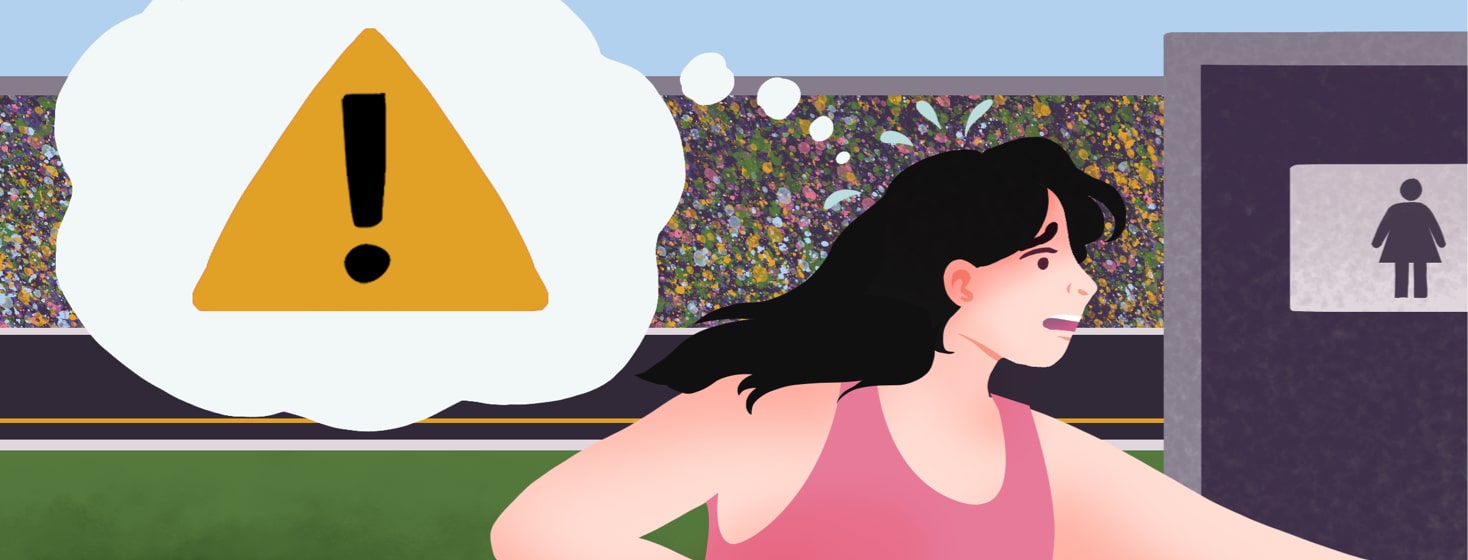RA and the Restroom
While I live with rheumatoid arthritis (RA), I also manage Crohn’s disease, a chronic inflammatory disease of the intestines.
In fact, for many years, my RA symptoms were overshadowed by the gastrointestinal (GI) distress I struggled with on a daily basis. I also shared an article previously on how my joint pain and other signs of RA weren't taken seriously until I had accrued another autoimmune diagnosis. Anyways, I digress.
GI conditions and rheumatoid arthritis
I know many other RA patients are also managing other GI conditions.
IBS
Results from our 9th Rheumatoid Arthritis In America survey showed that at least 22 percent of our community members are living with irritable bowel syndrome or IBS. IBS is a common disorder that affects the large intestine and causes symptoms such as abdominal pain, bloating, gas, diarrhea and/or constipation.1
IBD
There are also many community members like myself that have shared a Crohn's disease or ulcerative colitis diagnosis alongside living with rheumatoid arthritis.
Whether you’ve been diagnosed with a GI-related condition or you experience GI symptoms periodically, I know personally how much they can affect your life on a very regular basis.
From the clothes you wear to the places you go, from what you bring with you when you leave the house to how you mentally prepare for outings - it's a lot to juggle on top of a very exhausting life with RA.
Impact on quality of life
Living with RA means that my joints can cause severe pain, stiffness, and swelling, sometimes without much notice. My symptoms impact my ability to be comfortable in my skin, to get dressed by myself, to move around freely, to walk, to drive, to carry things.
Living with Crohn's disease, IBS, or any GI distress means that I also struggle with abdominal pain and bloating, as well as sometimes frequent and sometimes urgent trips to the restroom - often without any warning. Those 2 things are often at odds with each other, causing me much mental distress in the middle.
5 tips for the restroom
I’ve spent a lot of my life thinking about tips for how to manage these symptoms. Here are some tips I want to share with the RA community members when it comes to the restroom.
1. Knowing where the restroom is feels like an important place to start. When walking or moving quickly is challenging, extra steps in the wrong direction might take time and energy we just simply do not have.
2. Wearing clothes that are both comfortable and accessible. Honestly, when I struggle with my stomach and am in and out of the bathroom, I wear leggings or sweats - something that requires no zippers, buttons or snaps, and can pull down easily and swiftly.
3. Utilize assistive tools and devices where appropriate to ease your discomfort while using the restroom. There's a great article here titled "RA Loo Maneuvers" that details some of those options.
4. Speak with your doctor about as-needed medications you can take to ease your symptoms when they feel overwhelming.
5. Stay hydrated. Extra water may feel undesirable, but having loose and/or frequent trips to the bathroom can cause rapid dehydration, which can quickly lead to other physical challenges and discomforts.
If you have managed GI symptoms or live with a diagnosed GI disease, what tips would you add to this list? I look forward to reading them below.

Join the conversation